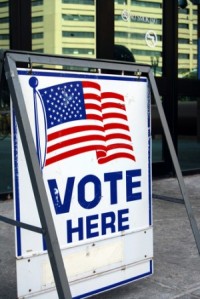'Faithless electors' have right to vote for presidential candidates of their choice, 10th Circuit says

Image from Shutterstock.com.
A federal appeals court has upheld the right of “faithless electors” to disregard state law and vote for the presidential and vice presidential candidates of their choice.
The 10th U.S. Circuit Court of Appeals at Denver ruled 2-1 Tuesday that the Electoral College system established by Article II and the 12th Amendment allows presidential electors to vote as they please. The Volokh Conspiracy, the Washington Post, NBC News and the Denver Post have coverage.
The decision is the first to address the issue by a federal appeals court. The Washington Supreme Court has issued a contrary ruling.
The U.S. Supreme Court ruled in 1952 that primary candidates for party electors can be required to pledge to support the party’s candidate, but it has not ruled on whether the pledge can be enforced.
Judge Carolyn McHugh wrote the majority opinion for the 10th Circuit panel. A dissenter, Judge Mary Beck Briscoe, said the case is moot because the Colorado electors had no remedy against the state.
The court majority ruled for Michael Baca. Baca had cast his vote for John Kasich, the former governor of Ohio, in 2016, even though state law at the time required him to vote for the winner of the state’s popular vote, Hillary Clinton.
Baca’s intention was to persuade enough members of the electoral college to cast votes for Republicans other than Donald Trump in an effort to deny Trump a victory.
The state removed Baca as an elector and canceled his vote. As a result, two other electors abandoned plans to vote for Kasich. All three joined the lawsuit against the Colorado secretary of state’s office. The 10th Circuit said only Baca had standing to sue.
Colorado has since passed a law that awards all its electoral votes to the winner of the national vote, according to a Denver Post article about an effort to put the issue before voters. The law won’t kick in until enough states pass similar laws to control the 270 electoral votes needed to elect a president.
So far, 15 states and Washington, D.C., have passed laws to join the so-called national popular vote interstate compact, according to the Aug. 1 article.
Lawrence Lessig, a Harvard Law professor, represented the Colorado electors in the 10th Circuit case. “This is an incredibly thoughtful decision that could advance substantially our campaign to reform the electoral college,” he told the Denver Post.



